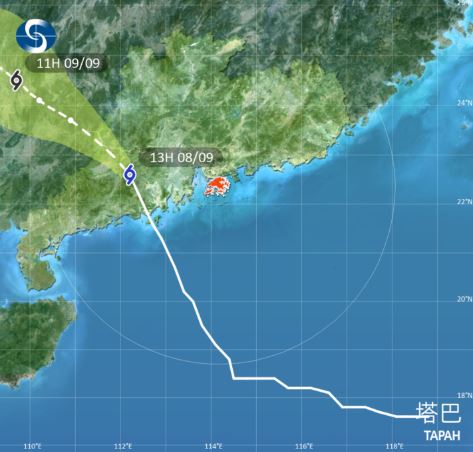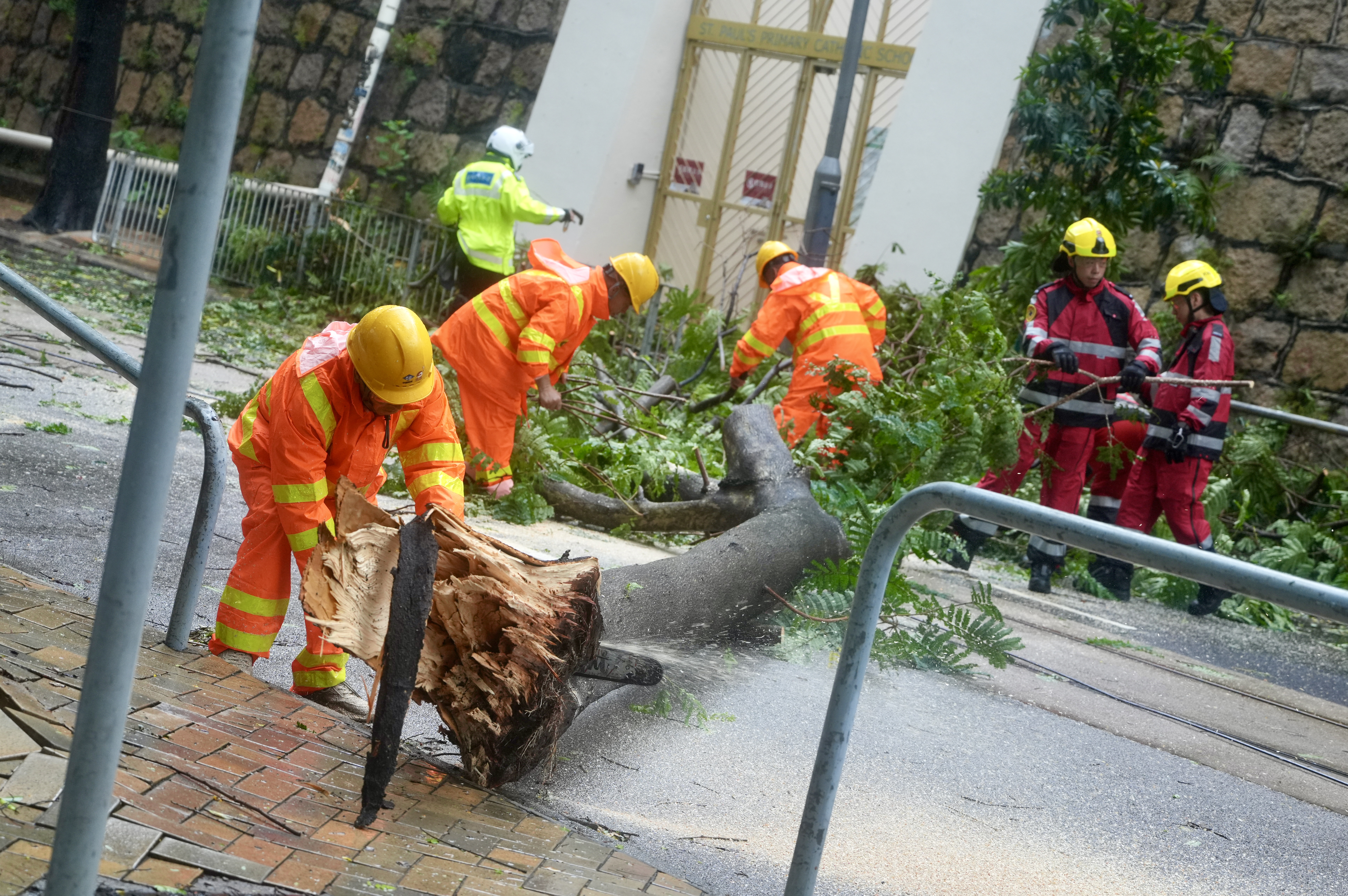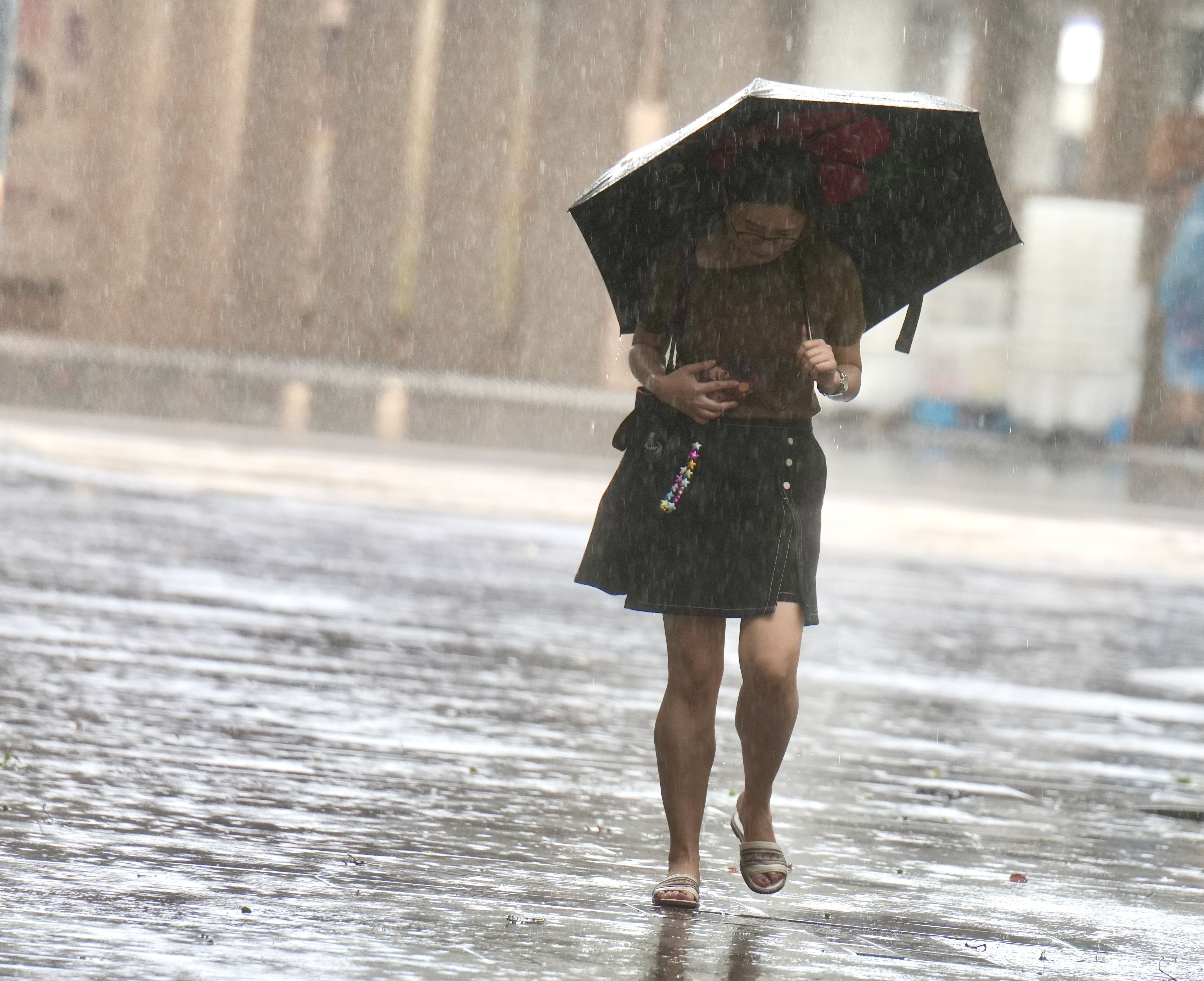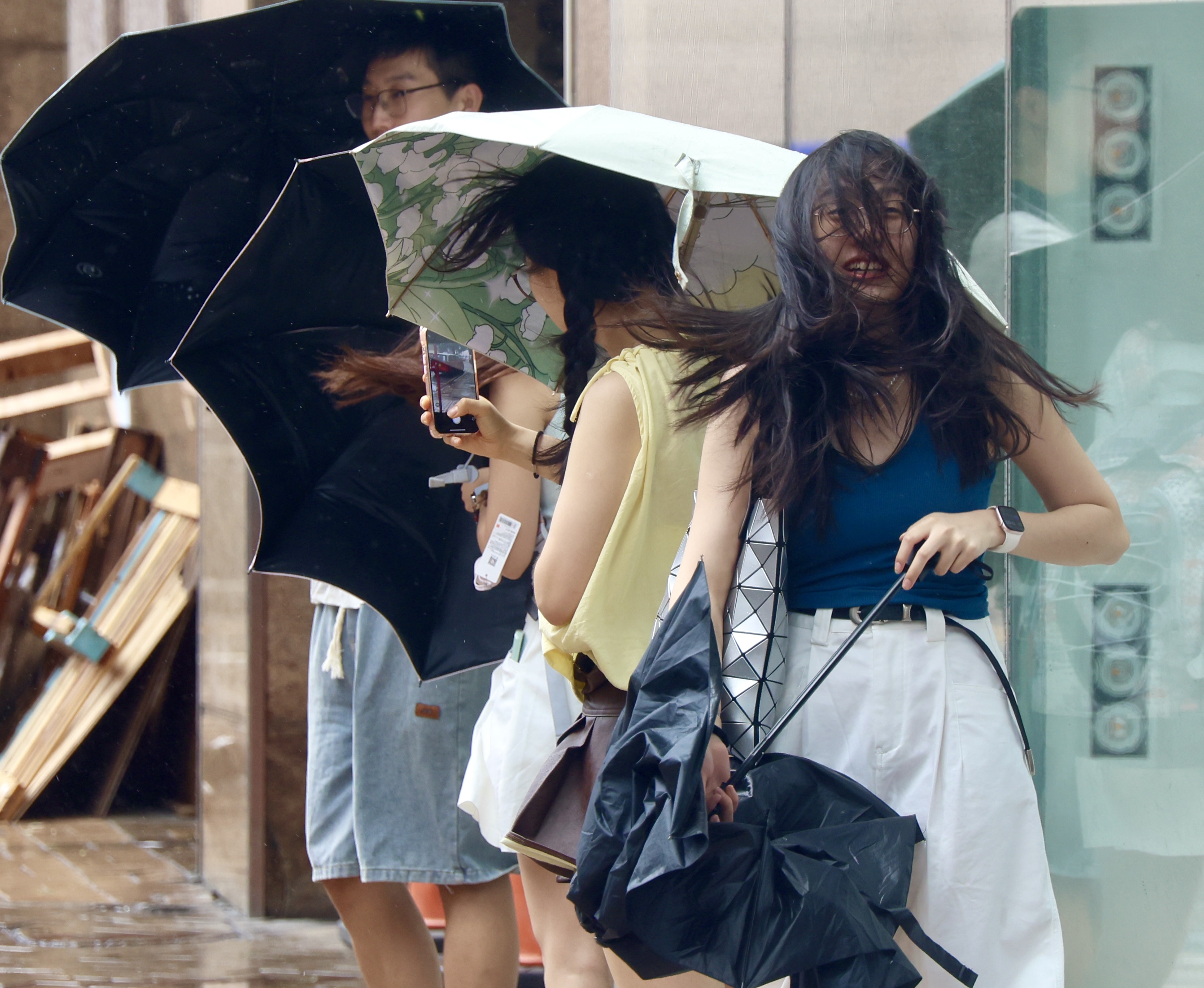
The Hong Kong Observatory issued the strong wind signal No 3 at 1:10 pm on Monday as severe tropical storm Tapah moved away from Hong Kong after lashing the city with heavy winds and rainstorms, disrupting flights and ground transportation and forcing schools to close.
The HKO said the strong wind signal, which replaced the gale or storm signal No 8, will remain in force as Tapah continued to move across inland Guangdong.
"Local winds are expected to moderate gradually, but winds will still be generally strong at first. Winds will occasionally reach gale force over the western part of Hong Kong, offshore and on high ground," the observatory said.
Tapah made landfall in Taishan, Jiangmen city, at around 8:50 am and moved inland but its rainbands are expected to continue to bring heavy squally showers to the Pearl River Estuary.
The HKO said it will issue the standby signal No 1 or cancel all tropical cyclone warning signals once the threat posed by Tapah to Hong Kong is reduced further.
ALSO READ: Typhoon Tapah makes landfall in South China coastal province

Much of the Hong Kong had endured persistent strong winds and heavy rainfall since Sunday night, prompting the observatory to hoist the No 8 signal at 9:20 pm.
During the height of the tropical storm, all day schools and many services across several government departments ceased operations, including those of the Social Welfare Department, and the majority of clinics and health centers under the Department of Health.
The Airport Authority Hong Kong expected to handle 800 flights today, while about 100 flights were set to be canceled. By early Monday, nine flights had already required diversion to alternate destinations and numerous passengers were stranded in the departure lounge.
Around 10:30 am, a Hong Kong Express aircraft from Beijing carrying 137 people veered off course during landing, hitting a runway sign and causing smoke to burst from its landing gear. Luckily, no injuries were reported, and the runway reopened at 12:15 pm. The Civil Aviation Department is looking into the incident.
The Home Affairs Department said it opened 29 temporary shelters, where 221 people sought refuge. The Hospital Authority said nine males and three females sought emergency treatment at public hospitals as of noontime while the government's 1823 Call Centre and the Fire Services Department received a total of 162 reports of fallen trees.

The Drainage Services Department also confirmed three cases of flooding, with no reports of landslides. All three flooding cases were resolved within two hours, according to the department.
After signal No 8 was lifted in the afternoon, numerous public services, including all the general and specialist out-patient clinics of the Hospital Authority, resumed normal operations. Evening schools will resume classes on Monday night as well.
Public transportation services like ferries, MTR trains and buses gradually resumed service in the afternoon. The Marine Department said the China Ferry Terminal in Tsim Sha Tsui and the Hong Kong-Macau Ferry Terminal in Sheung Wan have been reopened.
In multiple Guangdong cities including Shenzhen, Zhuhai and Yangjiang, schools and offices are also getting back to normal.

Braving heavy rain
Many residents had to venture out for work even in adverse weather conditions.
Robert Chen, an engineer who lives in Hong Kong but works in Dongguan, had to leave at 9:30 am after finding he was required to report for duty. Fortunately, the MTR was still running. His plan was to travel to the Lok Ma Chau checkpoint, transfer to the Shenzhen metro, and then switch to his company’s shuttle bus to Dongguan.
Chen braved the downpour, saying that as an employee, he had to go to work even if it were "raining knives”.

A cleaner surnamed Lui, after being woken by early morning thunder, took her usual route from Ma On Shan to The Wai mall atop Tai Wai MTR station. By 7:30 am, she was at work, and by 10 am, she had nearly finished cleaning the third floor.
Lui said the company had notified staff the night before that Typhoon Signal No 8 would remain hoisted until at least 11 am on Monday, and employees were offered voluntary attendance with transport reimbursed, with no obligation to come to work.
Though new -- having joined less than a month ago – and unsure about whether pay would differ, Lui chose to work. “I’m older, I wake up early, and there’s nothing to do at home anyway,” she said.
She had no issue working in severe weather, she said, but recalled frustration about wasting a leave day during one of last month’s black rainstorms, as she had learned the weather would have canceled work for everyone after taking a pre-arranged time off on the day.
Shadow Li contributed to the story.


